I remember it like yesterday:
It was a beautiful hot August day in Okinawa, and we – around 40 people from my Kobudo dojo – were training like mad for the upcoming demonstration we were about to perform at the Okinawa Karatedo Kobudo World Tournament the following week.
Though the result (the actual demonstration) in the end proved to be less than spectacular, we practised many months for that single demonstration. That demonstration which would show the “strength of our dojo” in front of everyone in Okinawa, including all of the foreign delegations.
Our sensei considered this demonstration, and its preparation, an immensely important subject. He almost didn’t speak of anything else. And if you didn’t come to the demonstration practise, every Sunday morning, every week, every month… then you might as well never show your nose in the dojo again.
Well, that’s the feeling I personally got.
I can’t speak for the other students, but I think they felt the same.
So, that day, after a couple of bo kata, nunchaku kata, adjustments here and there, changing lines and positions and so forth, we finally got a break for water. We had been training for about an hour or so.
“Suibun kyuukei” (lit. rehydration break) never sounds better than when you are training in Okinawa.
Especially if it’s August!
After a couple of sips of my Calpis (best soft drink in the world, and no, they didn’t pay me to say that) I noticed that people were gathering in one corner of the arena (that our sensei had rented just for these Sunday morning sessions). More people went over there, so I did the same.
It seemed our sensei had something to say.
He looked… disappointed.
Something was clearly bothering him.
“You are all training very hard, and the demonstration is looking better than last week. But… I want to see more spirit from everyone”.
We looked at each other. Some people nodded. Then somebody shouted something in Japanese, and we did some loud kiai together, to strengthen our team spirit, I think.
But it didn’t seem to work.
Our sensei still looked unhappy.
That’s when he did it.
Before I had time to blink, he quickly snatched a bo from one of his most senior students, and put it on the floor in a strange angle, right in front of our feet.
I have reenacted it here for you:
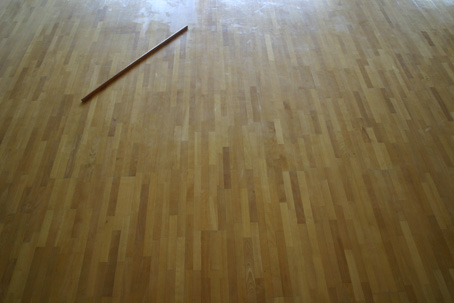
“Our old sensei has finally gone crazy” was what was on everyone’s mind.
At least judging by their faces.
“He shouldn’t have written that big Karate-Kobudo dictionary. It has obviously taken its toll on his mental health.”
But our negative thinking didn’t stop him from snatching another bo from a surprised black belt next to me. This is what he did with it:
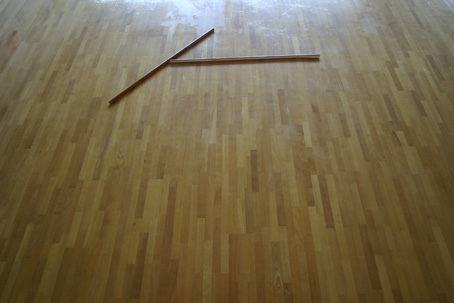
“Aah, now I see!”
He wants to illustrate different angles when you attack with the bo… that’s why he placed them like that on the floor… or?
In a flash, our sensei swiftly leaps towards another senior black belt, and takes his bo too. “What the…” is all I have time to think, before my mind gets caught up in the strange pattern he now has created with our wooden staffs on the floor.
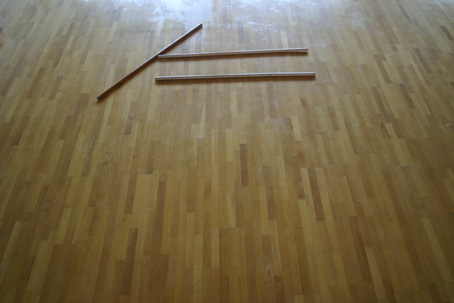
It reminded me of one of the symbols from I-Ching, the Chinese classic text on divination and mysticism.
“Is that what it is?! Is he doing fortune telling with our bo? I thought we had a demonstration coming up, shouldn’t we be practising?”
I looked at the other dojo members around me.
They all had faces of stone, as always.
But I knew they were as confused as me.
They had to be!
The next step looked like this:
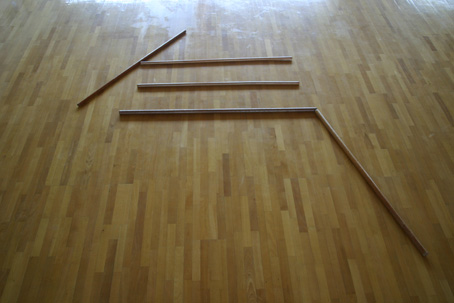
And that’s when I figured it out.
It wasn’t a practical joke, or prank.
It wasn’t a stroke of lunacy…
It was a stroke of genious.
He begged a couple of other students for their bo. They quickly ran over and offered them:
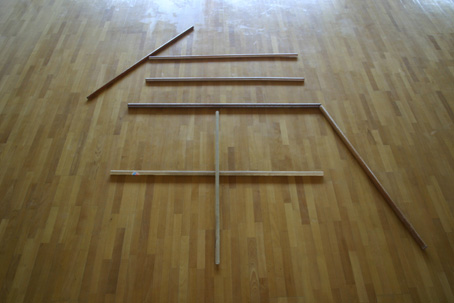
Now it looked like this.
And here I was lost again.
I thought I knew what he was doing. I was so sure!
But apparently not. It was something else.
Everyone waited for the final move.
What would the outcome be?
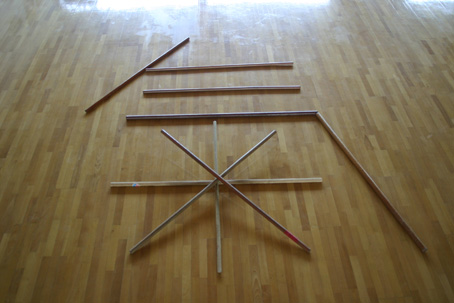
And there it was.
“Look” he said, as he stood back and enjoyed the moment, basking in the light of our “enlightened” minds.
What it is?
It is the kanji (Japanese character) for ki.
But it is the old version – that’s why I didn’t understand it at first.
But it doesn’t change a thing.
The meaning is the same.
Ki. Chi (or Qi) in Chinese.
Often translated into English as spirit, mind, energy, force or feeling.
It was what he felt was lacking from the demonstration. The last piece of the puzzle, so to speak.
He didn’t need to explain any of that though. We all knew what he wanted – what he meant – as we stood there silently, smiling, watching a pile of wood lying before us.
Or, if – as my dictionary says – “art is the process or product of deliberately arranging elements in a way that appeals to the senses or emotions…”
Then we just saw the creation of… a piece of art.
And all art is but imitation of nature.
In this case, the nature of Okinawan Karate and Kobudo!
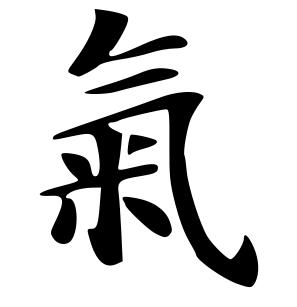
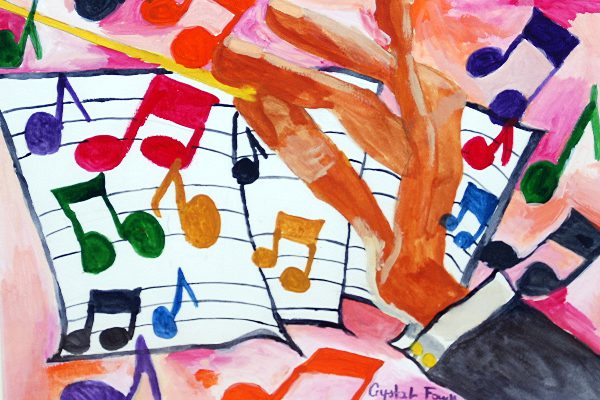
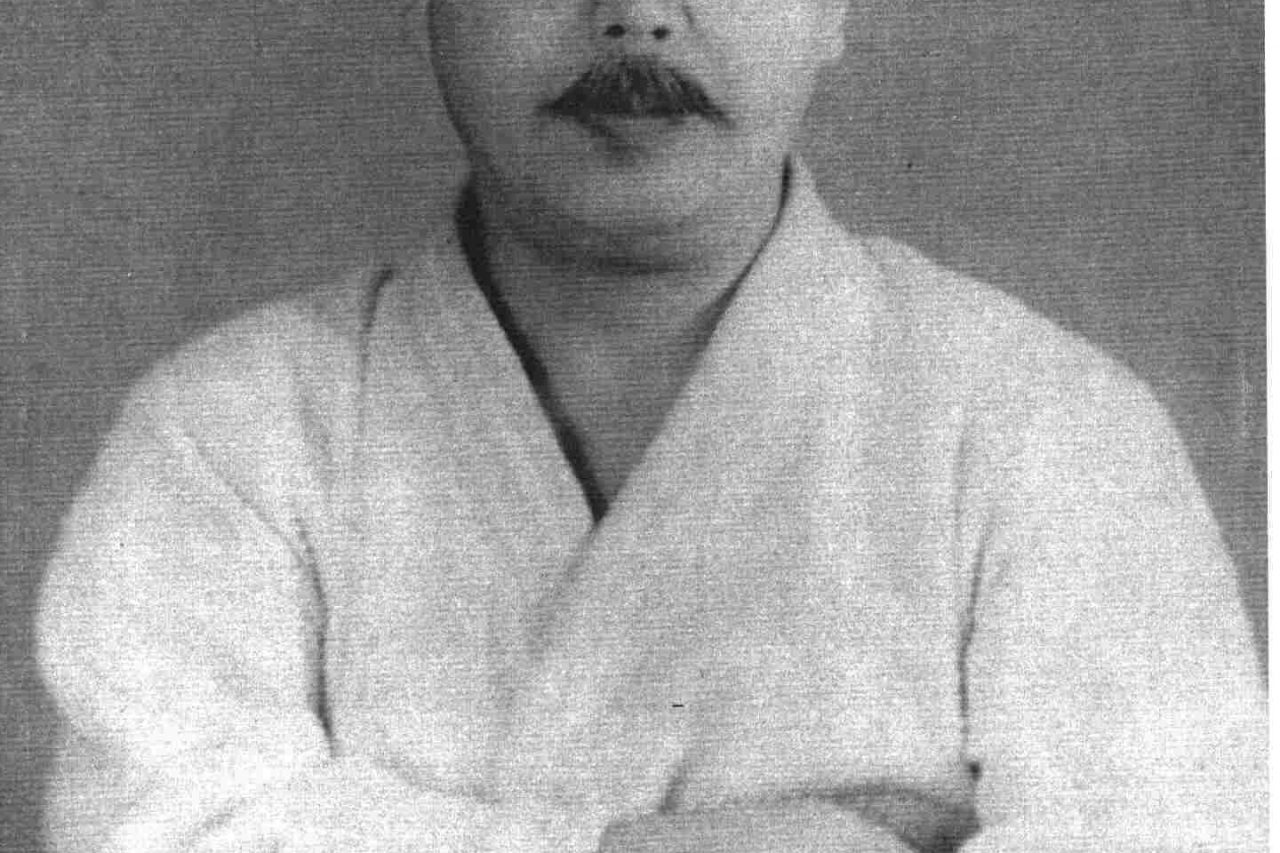
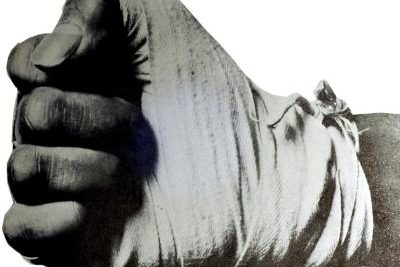
8 Comments